STATEHOUSE REPORT | ISSUE 23.42 | Oct. 18, 2024
BIG STORY: S.C. still ‘bullish’ on electric vehicles, batteries
MORE NEWS: Northern billionaire funds S.C. vouchers
LOWCOUNTRY, Ariail: Climate change
COMMENTARY, Brack: Democracy can’t afford Trump’s lies, chaos
SPOTLIGHT: Riley Institute at Furman University
MYSTERY PHOTO: Pretty empty street
FEEDBACK: Send us your thoughts
S.C. still ‘bullish’ on electric vehicles, batteries
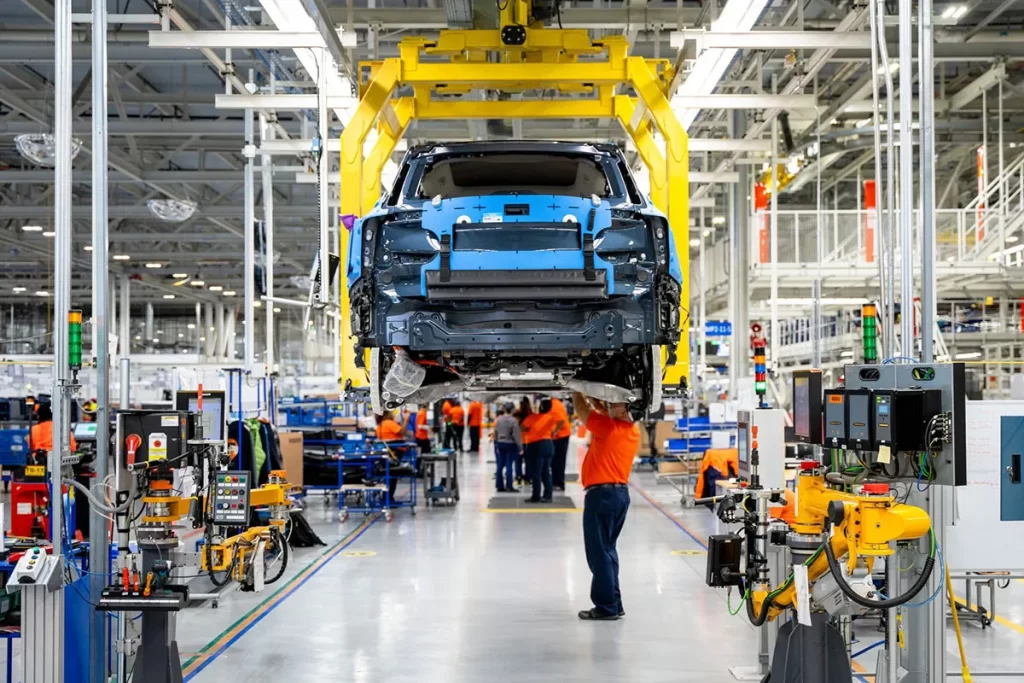
By Jack O’Toole, Capitol bureau | South Carolina officials say they’re still determined to transform the Palmetto State into a global powerhouse in electric vehicle (EV) and battery manufacturing, despite delays in major projects.
An economic driver in that unwavering commitment is almost $1 billion in new federal funding announced in recent weeks, on top of millions of dollars in subsidies already provided by the S.C. General Assembly.
“South Carolina remains bullish on the industry and [its] role in our economy – and creating opportunities for all South Carolinians,” S.C. Commerce Department spokesman Alex Clark said this week. “Many of our large, announced projects are already under construction and starting to make their mark on local communities [and] the local economy.”
Five of those local projects got major boosts on Sept. 20 with the announcement of $850 million in federal funding under 2021’s Infrastructure Investment and Jobs Act (IIJA), better known as the Bipartisan Infrastructure Law. The recipients were:
- Cirba Solutions, Columbia: $200 million for a new facility to recycle lithium-ion batteries obtained from electric vehicles, energy storage systems, end-of-life consumer materials.
- EnerSys Advanced Systems, Piedmont: $199 million to construct a 500,000 square foot lithium-ion battery cell manufacturing facility that’s expected to begin production in 2028.
- Clarios Circular Solutions, Florence: $150 million to retrofit an existing Clarios facility to recycle lithium-ion battery production scrap for about 200,000 new EV batteries annually.
- SKI US, Inc., Orangeburg: $150 million to produce graphite, a material necessary for electrical conduction in EV batteries, using a new process that makes it cost-effective under U.S. environmental standards.
- American Battery Technology Company.: $150 million to build a new lithium-ion battery recycling facility to process approximately 100,000 tons of battery materials per year at an S.C. site to be determined.
All totaled, the projects are expected to create about 1,500 permanent, full-time jobs.
“In positioning South Carolina as a leader in the battery manufacturing space,” U.S. Rep. James Clyburn, D-S.C., said in a press statement, “the Biden-Harris administration is connecting communities to opportunity throughout the state for generations to come as we continue our transition toward a clean energy economy.”
Recent setbacks
Despite continuing commitments at the federal and state levels, experts say 2024 is a challenging time for automotive and battery manufacturers, with softer-than-expected demand for EVs, particularly in the U.S.
As a result, car companies have recently announced major cutbacks in planned EV production. Meanwhile, the price of lithium, a rare metal used in modern batteries, has fallen more than 80% over the past two years, reflecting significant oversupply in the context of weakened demand.
In S.C., those issues have led to delays in a number of major projects, most notably an indefinite pause in the construction of a $1.3 billion lithium production facility in Chester County.
“Currently, two main elements are driving consumer demand and those come down to price and convenience,” University of South Carolina economist Joseph Von Nessen said in an interview.
And while prices are starting to become competitive with traditional automobiles, Von Nessen explained, convenience of EVs for consumers is still a major roadblock to widespread adoption.
“When we talk about convenience, that primarily means battery life and the availability of charging stations,” Von Nessen said. “And it’s still very much an open question as to how quickly those elements will improve.”
“Moving up in the value chain”
With more than $12 billion in federal, state and private investments and almost 11,000 new jobs promised in current projects, South Carolina is betting big on EVs and the batteries that power them.
“EV-related companies account for more than half of the $10.27 billion in economic development South Carolina announced last year [and] that speaks to our state’s great potential to lead in this sector,” Gov. Henry McMaster, long a champion of EV manufacturing, said in February 2023. “Our business-friendly climate and our greatest resource – our people – make South Carolina the place where the EV industry can transform the future.”
This week, the Commerce Department’s Clark called that transformation “critical” – particularly given the 75,000 S.C. jobs that already rely on a healthy automotive sector fueled by tire production, vehicle manufacturing, logistics and engineering, port operations and more..
“The industry is currently undergoing the largest transformation in the last 100 years as it shifts from the gasoline combustion engine to the electric vehicle,” Clark said. “It is imperative for South Carolina to be part of this transformation in order to secure our existing jobs and to create jobs that will last into the future.”
According to Von Nessen, those sentiments square with the long-term projections, though there are still important questions to be answered.
“Demand is coming, but the timing is very uncertain,” he said. “And where that demand will land is also uncertain. Are we talking about a market where 50% of new vehicles are EVs in 10 or 15 years or does it stabilize at 30 to 40%?”
Nevertheless, he says, EVs and batteries represent an opportunity for South Carolinians to profit from auto manufacturing in a way they never have in the past.
“If we look at auto manufacturing to date, one of the things we don’t make in South Carolina is engines, which is the highest value-add of a vehicle,” Von Nessen said. “And so, by focusing on electric motor and battery production, that allows us to move up in the value chain, which will be very beneficial to the state in the long run.”
- Have a comment? Send to: feedback@statehousereport.com.
Northern billionaire funds vouchers through Dec.
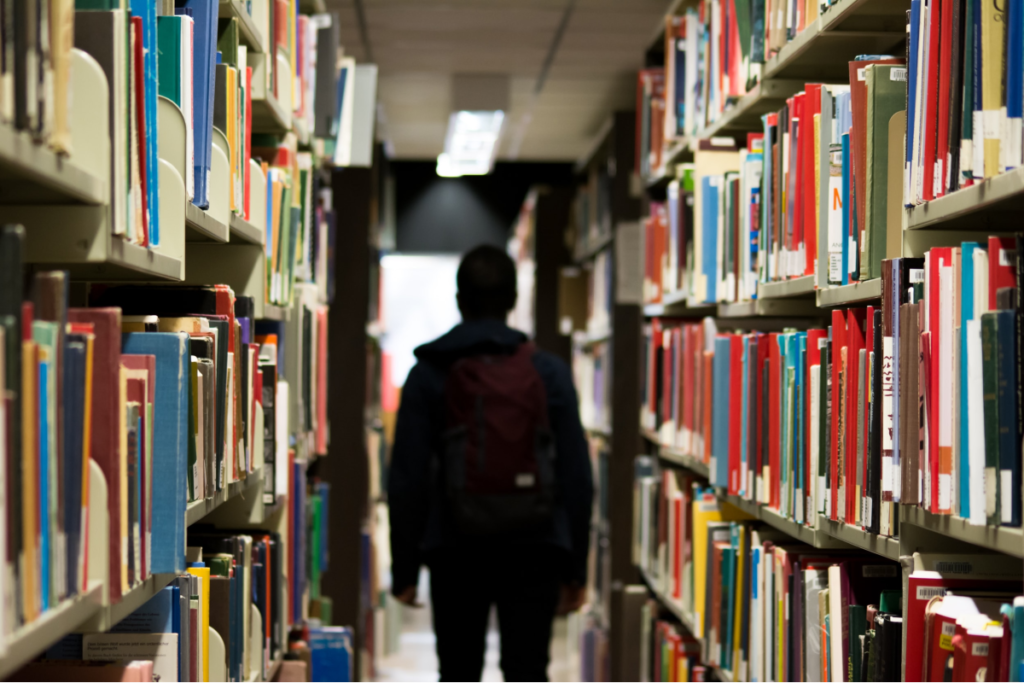
By Jack O’Toole, Capitol bureau | A controversial Pennsylvania billionaire will help about 700 low-income students stay in South Carolina private schools through December.
The state-funded voucher program they were relying on to pay tuition was struck down last month by the S.C. Supreme Court. After the end of the semester, funding for the students is unclear.
Jeff Yass, a Wall Street titan from Haverford, Penn., has reportedly showered more than $130 million on Republican candidates and causes since 2020. This week, he gave $900,000 to the right-of-center nonprofit Palmetto Promise Institute (PPI) for use as tuition assistance through the end of this semester, according to the organization.
PPI, which was led by Republican Ellen Weaver before she was elected to be the state’s superintendent of education in 2022, said it will have to raise additional funds to keep children enrolled for the rest of the school year.
“Jeff Yass wanted us to use his name and use this announcement to open doors for more donations,” PPI President and CEO Wendy Damron told Statehouse Report in an Oct. 17 interview. “He just really wanted to help these families and get this campaign for future donations moving.”
Donations will be used exclusively for tuition assistance, Damron added, with PPI covering all administrative and fundraising costs.
Yass, who reportedly owns a $21 billion stake in the video-sharing app TikTok, made headlines earlier this year when critics on both sides of the aisle accused him of “bullying” members of Congress to vote no on a forced sale of the Chinese-controlled company. Though the legislation ultimately passed, former President Donald Trump reversed his longtime support for the bill and lobbied against it after meeting with the GOP mega-donor at Mar-a-Lago in March.
TikTok is blocked on all state-owned devices in South Carolina by order of Gov. Henry McMaster, who has called it a foreign “threat” and a “clear and present danger to its users.” It was also often cited as a major problem that would be solved by the state’s new ban on cell phones in K-12 public schools.
Weaver, who reportedly received $750,000 in political support from Yass’s School Freedom Fund PAC during her hotly contested 2022 Republican primary campaign run-off against voucher opponent Kathy Maness, said she hoped the $900,000 donation would motivate others to give.
“I am profoundly grateful for this enormous gift of hope for students left out in the cold by the Supreme Court majority’s flawed decision,” Weaver said in a statement. “I remain committed to working with the governor and the General Assembly to urgently restore this worthy program to full impact, and I pray that even more generous donors will be inspired to stand in the gap for these children until then.”
The General Assembly is expected to take up new voucher legislation when it returns in January.
S.C.’s 2,000th historical marker dedicated in Chester
![]() South Carolina’s latest historical marker – the state’s 2,000th – honors the role that Finley High School in Chester County played in educating generations of Black children during the darkest days of segregation and Jim Crow.
South Carolina’s latest historical marker – the state’s 2,000th – honors the role that Finley High School in Chester County played in educating generations of Black children during the darkest days of segregation and Jim Crow.
Founded in 1923 as Chester Colored High School, Finley High went on to serve as a so-called “equalization school” in the 1950s, when S.C. was following a “separate but equal” policy aimed at preempting federal desegregation orders. It is named after longtime principal Samuel Louis Finley Sr.
The historical marker was sponsored by S.L. Finley Restoration Association. According to the S.C. Department of Archives and History , it represents the 2000th such marker dedicated by the agency since 1936.
In a statement recognizing the milestone, the agency’s director called the state’s historic marker program “the oldest, most visible, and most popular form of historic preservation” in the state.
“The approval of the 2,000th state historical marker is a tangible reminder that for generations, South Carolinians have placed significant value on those historic sites that have shaped both them and their forebears,” W. Eric Emerson said.
- To learn more about the school and its history, visit the S.L. Finley Restoration Association website at slfinleyra70.org.
In other recent news
Dorchester County to host traveling Vietnam War memorial. A traveling replica of the Vietnam Veterans Memorial wall in Washington D.C., “The Wall That Heals,” will be on display in Ridgeville through Oct. 20..
Clyburn worried about Project 2025’s potential effect on S.C. U.S. Rep. James E. Clyburn, D-S.C., recently told the Charleston City Paper that he fears the nation’s Electoral College is a potential barrier to a Harris-Walz victory, even if the Democratic team wins the popular presidential vote on Nov. 5.
S.C. book ban regulation in effect. Librarians say they enjoy support from students, parents and school colleagues, but feel attacked by policymakers and by strangers ranting on X, on private Facebook pages and in social media messages about alleged dark intentions.
Fewer S.C. high school graduates went to college this fall, state report finds. Fewer high schoolers enrolled in or applied for college this fall, even though the graduation rate for the Class of 2024 was slightly better than last year.
Early voting in S.C. kicks off on Oct. 21. Charleston County voters will be able to cast their ballots as early as next Monday through seven different early voting locations.
FEMA expands aid, opens S.C. centers to help those seeking disaster funds. The Federal Emergency Management Agency has opened Helene recovery centers at the Nancy Carson Library in North Augusta, Anderson County Library in Anderson, the Barnwell Regional Airport, the Freetown Community Center in Greenville and the Batesburg-Leesville Fire Station for people who want to sign up for aid in person rather than applying online or over the phone.
New coalition says rural S.C. towns need more banking options. State law doesn’t allow local governments to use credit unions, with limited exceptions.
Advisory group suggests restart of failed nuclear project. A nuclear advisory group created by the legislature is pushing for a study into restarting construction on a pair of nuclear reactors mothballed seven years ago as part of a failed nuclear power plant expansion in South Carolina.
What does a La Nina mean for S.C.? This fall, La Niña is slowly developing, and this shift in the pattern is expected to last at least through February 2025. Scientists are not expecting a strong La Niña event, but even a weak La Niña during winter could mean a different type of winter for the South.
Climate change
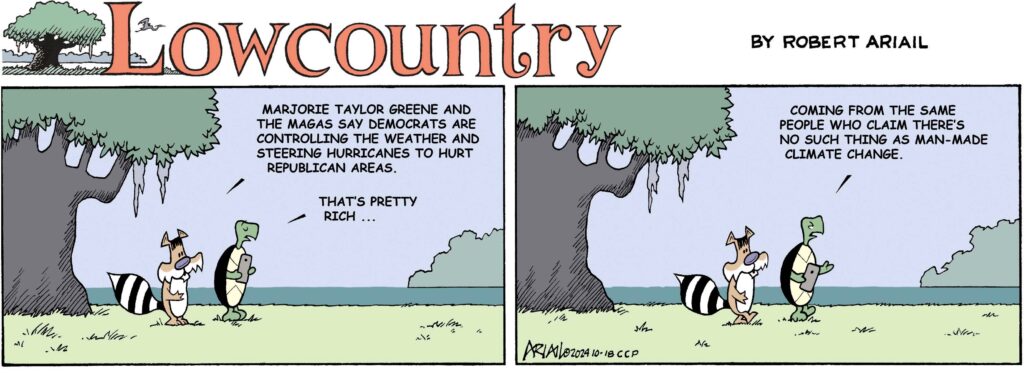
Nationally award-winning cartoonist Robert Ariail always has an interesting take. This week, he takes on the odd turn of events on how climate change deniers are blaming Democrats for controlling the weather and causing what they say they don’t believe in.
- What do you think … love it or hate it? Did he go too far, or not far enough? Send your thoughts to feedback@statehousereport.com.
Democracy can’t afford Trump’s lies, chaos
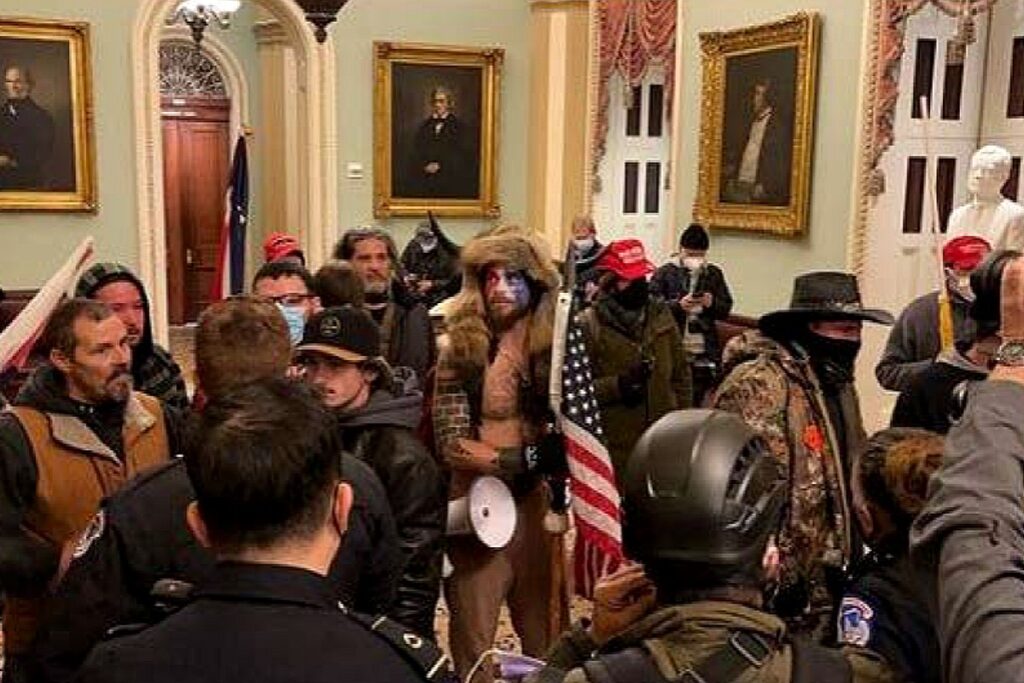
By Andy Brack | The continuing string of nonsense that spews from former President Donald Trump’s mouth is like a bad stream-of-consciousness novel.
 The latest jaw-dropping babble came during a televised Univision town hall on Oct. 16: Trump now says the violent Jan. 6 attack on the U.S. Capitol was a “day of love.”
The latest jaw-dropping babble came during a televised Univision town hall on Oct. 16: Trump now says the violent Jan. 6 attack on the U.S. Capitol was a “day of love.”
Enough. Enough spin. Enough deceit. Do you remember Jan. 6 as a “day of love” as you recall enraged people climbing the walls of the Capitol, assaulting law enforcement officers, smashing doors and rampaging through a national symbol of freedom? Remember the guy wearing the Viking hat?
That was a day of love? What planet is this former president from? Jan. 6, 2021 was an unbelievable attack on democracy incited by a man who couldn’t come to grips that he lost an election. And now this loser wants back into the office? The madness has to stop.
During the town hall, a Florida Republican voter outlined how he was giving the former president the chance to win back his vote after Trump’s “action and maybe inaction during your presidency and the last few years was sort of a little disturbing to me.” The Latino voter also said he was concerned about slow action during the pandemic and the large number of former administration officials who no longer supported him.
Trump shrugged it off, spinning away from reality by saying, “That was a day of love from the standpoint of millions, hundreds of thousands, it could have been, the largest group I’ve ever spoken before.”
Again, a day of love? Violence, looting, riots, death? That’s not how Trump described the attack on Jan. 7, when he said the people engaged in “acts of violence and destruction” did not “represent our country” and “will pay.”
And that’s surely not how a former U.S. Capitol Police officer remembers it after being repeatedly assaulted on Jan. 6.
“They almost ‘loved me’ to death,” the former officer, Aquilino Gonell, told NBC News. “I guess a lot of people were hugging me and kissing me. I should be thankful, I guess, according to him, because I lost my career, because I lost my health, I lost my financial stability, my mental health paid a price. And that’s a result of that ‘day of love,’ as he continues to say nothing happened.”
Gonell pointed out more than 140 officers were hurt and people lost lives during the attack.
“Democracy was in shambles because of what he did, because he refused to concede.”
Reasonable Americans who watched what happened on Jan. 6, 2021, when Trump incited a mob should know he is lying. And as they head to the polls in November, they should realize his whole political campaign is built upon a house of lying cards that will cave to autocrats and seriously threaten the future of American freedom and democracy.
It’s better to listen in earnest to the true supporter of democracy in the race – Vice President Kamala Harris – who built a career prosecuting liars and crooks like Trump, the convicted felon. She wants to build opportunities for Americans, not tear them down. In contrast to Trump’s continuing spin, listen to her vision she related during the same week in a Pennsylvania rally with more than 100 Republicans:
“We here know the Constitution is not a relic from our past, but determines whether we are a country where the people can speak freely, and even criticize the president, without fear of being thrown in jail, or targeted by the military. Where the people can worship as they choose without the government interfering. Where you can vote without fear that your vote will be thrown away. All this and more depends on whether or not our leaders honor their oath to the Constitution.”
She pointed out how Trump tried to overturn the will of Americans on Jan. 6 and has called on the military to go after Americans who don’t support him. She said he must not have unchecked power.
“If you share that view, no matter your party, no matter who you voted for last time: There is a place for you in this campaign. The coalition we have built has room for everyone who is ready to turn the page on the chaos and instability of Donald Trump.”
Hear, hear.
Andy Brack is editor and publisher of Statehouse Report and the Charleston City Paper. Have a comment? Send to: feedback@statehousereport.com.
Riley Institute at Furman University
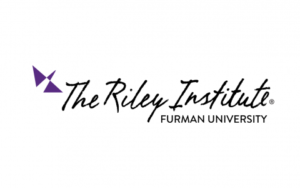 The public spiritedness of our underwriters allows us to bring Statehouse Report to you at no cost. This week’s spotlighted underwriter is Furman University’s Riley Institute, which broadens student and community perspectives about issues critical to South Carolina’s progress. It builds and engages present and future leaders, creates and shares data-supported information about the state’s core challenges, and links the leadership body to sustainable solutions.
The public spiritedness of our underwriters allows us to bring Statehouse Report to you at no cost. This week’s spotlighted underwriter is Furman University’s Riley Institute, which broadens student and community perspectives about issues critical to South Carolina’s progress. It builds and engages present and future leaders, creates and shares data-supported information about the state’s core challenges, and links the leadership body to sustainable solutions.
Launched in 1999, the Institute is named for former South Carolina Governor and former United States Secretary of Education Richard W. (Dick) Riley. It is committed to nonpartisanship in all it does and to a rhetoric-free, facts-based approach to change.
- Learn more about the Riley Institute.
- Also learn more about the Riley Institute’s Center for Education Policy and Leadership.
Pretty empty street
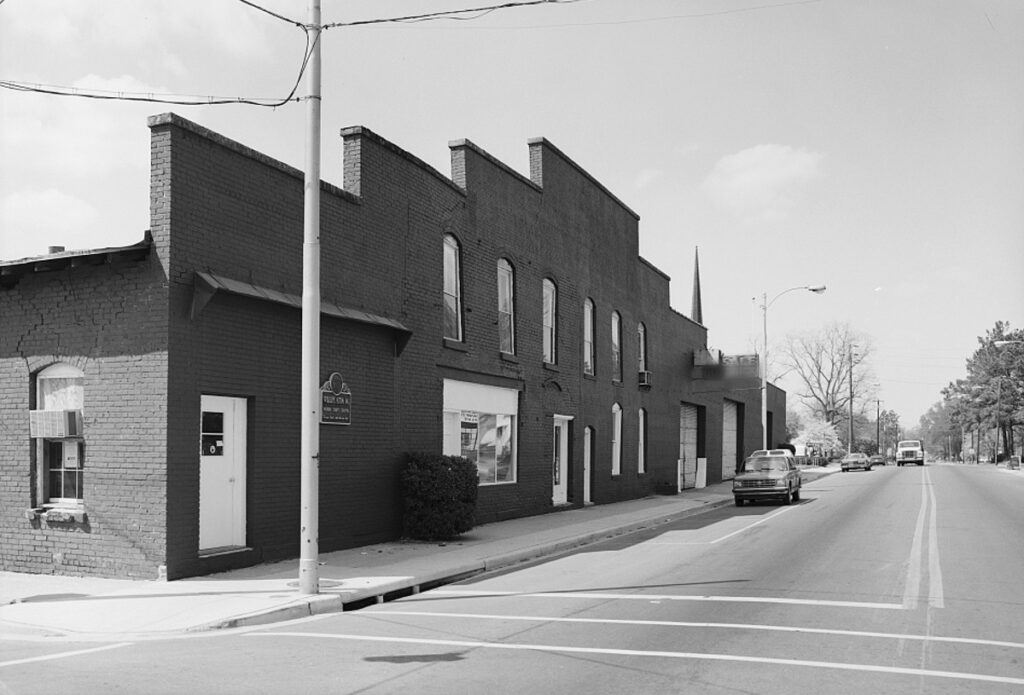
Here’s a pretty empty street somewhere in South Carolina. What is this building and where is it? Send your name, hometown and guess to: feedback@statehousereport.com.
 Last week’s mystery, “Shiny floor,” is a 2009 photo in the U.S. Library of Congress by photographer Carol Highsmith. It shows the interior of the U.S. Custom House on East Bay Street in Charleston.
Last week’s mystery, “Shiny floor,” is a 2009 photo in the U.S. Library of Congress by photographer Carol Highsmith. It shows the interior of the U.S. Custom House on East Bay Street in Charleston.
Congratulations to these longtime sleuths who identified the location: Jay Altman and Elizabeth Jones, both of Columbia; Allan Peel of San Antonio, Texas; George Graf of Palmyra, Va.; David Lupo of Mount Pleasant; Pat Keadle of Perry; Don Clark of Hartsville; and Penny Forrester of Tallahassee, Fla.
Peel provided more info on the building: “Its importance lies in the fact that during the mid-19 century, Charleston was one of the country’s busiest port cities, and this historic building is one of only a few of the country’s custom houses that continues to serve its original purpose … namely, to house the offices of government officials who oversee the importing and exporting of goods into and out of the country.
“Construction of this two-story, Roman-Corinthian style building began in 1852, but was interrupted in 1859 due to costs and the possibility of South Carolina’s secession from the Union. After the Civil War, construction was restarted in 1870 and completed in 1879. The building was placed on the National Register of Historic Places on October 9, 1974.”
Graf sent in this interesting tidbit: “In 1903, President Theodore Roosevelt appointed William C. Crum, MD, graduate of the Avery Institute, University of South Carolina, and Howard University Medical School as port collector. Crum was the son of Darius Crum, a German American, and Charlotte C. Crum, a free woman of color. In 1883 he married Ellen Craft, the daughter of the famous fugitive slave abolitionists William and Ellen Craft of Georgia.”
You can learn more about the Crafts in the Pulitzer Prize-winning book, Master Slave Husband Wife, by Ilyon Woo. Andy Brack wrote recently about it here.
- Send us a mystery picture. If you have a photo that you believe will stump readers, send it along (but make sure to tell us what it is because it may stump us too!) Send to: feedback@statehousereport.com and mark it as a photo submission. Thanks.
Send us your thoughts
We encourage you to send in your thoughts about policy and politics impacting South Carolina. We’ve gotten some letters in the last few weeks – some positive, others nasty. We print non-defamatory comments, but unless you provide your contact information – name and hometown, plus a phone number used only by us for verification – we can’t publish your thoughts.
- Have a comment? Send your letters or comments to: feedback@statehousereport.com. Make sure to provide your contact details (name, hometown and phone number for verification. Letters are limited to 150 words.
ABOUT STATEHOUSE REPORT
Statehouse Report, founded in 2001 as a weekly legislative forecast that informs readers about what is going to happen in South Carolina politics and policy, is provided to you at no charge every Friday.
- Editor and publisher: Andy Brack, 843.670.3996
- Statehouse bureau chief: Jack O’Toole
Donate today
We’re proud to offer Statehouse Report for free. For more than a dozen years, we’ve been the go-to place for insightful independent policy and political news and views in the Palmetto State. And we love it as much as you do.
But now, we can use your help. If you’ve been thinking of contributing to Statehouse Report over the years, now would be a great time to contribute as we deal with the crisis. In advance, thank you.
More
- Mailing address: Send inquiries by mail to: P.O. Box 21942, Charleston, SC 29413
- Subscriptions are free: Click to subscribe.
- We hope you’ll keep receiving the great news and information from Statehouse Report, but if you need to unsubscribe, go to the bottom of the weekly email issue and follow the instructions.
- Read our sister publication: Charleston City Paper (every Friday in print; Every day online)
- © 2024, Statehouse Report, a publication of City Paper Publishing, LLC. All rights reserved.


